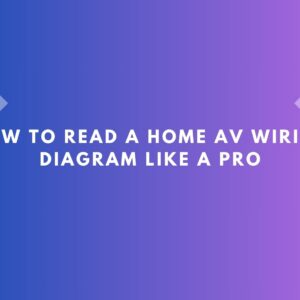In recent years, residential solar power systems have become a popular choice for homeowners across Australia, particularly in sunny regions like Queensland. As electricity prices continue to rise and the focus on sustainability grows stronger, more households are looking for reliable and cost-effective ways to power their homes. If you’re considering making the switch, understanding the key benefits of residential solar systems can help you make an informed decision.
In this comprehensive guide, we’ll explore seven compelling advantages of residential solar power and provide practical insights on how to choose the right residential solar installer for your needs. Whether you are just starting to research residential solar power installation or ready to take the next step, this article offers valuable information tailored to homeowners on the Gold Coast and beyond.
What Is Residential Solar Power?
Before diving into the benefits, it’s helpful to understand what residential solar power means. Residential solar systems typically consist of solar panels installed on your roof that convert sunlight into electricity. This electricity powers your home’s appliances, lighting, and other electrical needs. When paired with a battery system, any surplus energy can be stored for use during the night or cloudy days.
Residential solar panel systems come in various sizes and configurations, customised to suit individual household energy consumption patterns, roof designs, and budgets. A professional residential solar installer will design and install a system that best fits your home’s unique requirements.
1. Significant Reduction in Electricity Bills
One of the most immediate and noticeable benefits of residential solar power systems is the reduction in electricity bills. By generating your own electricity from sunlight, you reduce the amount of power you need to purchase from the grid.
In sunny regions like the Gold Coast, homes with properly sized solar systems can expect substantial savings year-round. Many homeowners report cuts in their electricity costs of up to 50% or more. Over time, these savings can offset the initial cost of residential solar power installation and eventually lead to net financial gains.
Additionally, many households benefit from Queensland’s solar feed-in tariffs, where excess solar energy exported to the grid earns credits or payments, further enhancing cost savings.
2. Environmentally Friendly and Sustainable Energy Source
Residential solar power is a clean, renewable energy source. Unlike electricity generated from fossil fuels, solar power produces no greenhouse gas emissions or air pollutants during operation. This makes it one of the most environmentally friendly energy options available to homeowners.
By adopting residential solar systems, you contribute to reducing your household’s carbon footprint, helping combat climate change. It’s a tangible way to support Australia’s transition to renewable energy and preserve natural resources for future generations.
Many Australians find this environmental benefit to be a strong motivating factor when investing in residential solar power.
3. Increased Home Value
Installing residential solar power systems can increase the value of your property. Studies have shown that homes with solar panel installations often sell faster and at higher prices than comparable homes without solar.
Prospective buyers recognise the long-term financial and environmental advantages of solar power, making solar-equipped homes more attractive in the real estate market. This benefit is especially relevant in markets like the Gold Coast, where energy efficiency and sustainability are growing priorities.
When working with a reputable residential solar installer, you can be confident that your system will be professionally designed and compliant with local standards, further boosting your home’s appeal.
4. Energy Independence and Reliability
Another significant advantage of residential solar is increased energy independence. Solar power reduces your reliance on the electricity grid, protecting you from fluctuating energy prices and potential power outages.
When paired with solar battery storage, such as the Tesla Powerwall, residential solar power systems can store excess energy generated during the day for use at night or during outages. This enhances the reliability of your home’s power supply and provides peace of mind.
With rising concerns about grid stability and energy security, having your own solar power system ensures your household stays powered regardless of external disruptions.
5. Government Incentives and Rebates
The Australian government, along with state-level programs like those in Queensland, offers incentives to encourage the adoption of residential solar systems. These incentives can significantly reduce the upfront costs of solar panel installation.
For example, the Solar Homes Program in Queensland provides rebates for eligible households installing solar panel systems, solar batteries, or solar hot water systems. Additionally, small-scale technology certificates (STCs) offer financial benefits based on your system’s size and location.
Understanding eligibility and application processes can be complex, but experienced residential solar installers like Energy Solution Centre guide homeowners through the entire process, helping maximise available rebates and streamline installation.
6. Low Maintenance and Longevity
Residential solar systems require minimal maintenance once installed. Solar panels have no moving parts and are designed to withstand Australian weather conditions, including intense sunlight, rain, and wind.
Regular cleaning and occasional inspections are usually sufficient to keep your system operating at peak performance. Most solar panels come with warranties ranging from 10 to 25 years, and high-quality inverters typically last 10 to 15 years.
Choosing a reputable residential solar installer ensures that your system is installed to high standards, backed by manufacturer warranties and professional after-sales support.
7. Technological Advancements and Smart Home Integration
The technology behind residential solar power systems continues to advance rapidly. Modern solar panels are more efficient than ever, and innovations like microinverters and smart monitoring systems enhance performance and user experience.
Smart home integration allows homeowners to track energy production and consumption in real-time via mobile apps or web portals. This empowers better energy management and helps maximise savings.
Additionally, solar battery storage systems provide flexibility and autonomy, allowing homes to store surplus energy or even participate in emerging energy trading platforms.
Working with experienced installers who keep abreast of these technologies ensures your residential solar power system remains future-proof and maximises benefits.
Choosing the Right Residential Solar Installer
Selecting a professional and trustworthy residential solar installer is crucial to getting the most from your investment. A good installer will assess your home’s energy needs, roof suitability, and budget before recommending customised residential solar systems.
Look for installers who:
-
Have local experience and a strong reputation
-
Use high-quality components like Enphase microinverters or Tesla solar panels
-
Offer comprehensive services from free energy assessments to ongoing support
-
Assist with rebates, permits, and compliance
-
Provide clear, transparent pricing and warranty guarantees
Energy Solution Centre, based on the Gold Coast, fits this profile perfectly. With over 10 years of expertise, they specialise in residential solar power installation tailored to Queensland homes. Their team’s commitment to quality and customer satisfaction ensures every project runs smoothly from start to finish.
Frequently Asked Questions About Residential Solar
Q: How much does a residential solar panel system cost?
A: Costs vary depending on system size, equipment, and installation complexity. On average, residential systems in Queensland range from $4,000 to $12,000 before rebates.
Q: How long does installation take?
A: Typical residential solar power installation takes 1 to 3 days, depending on system size and site conditions.
Q: Will solar panels work on cloudy days?
A: Yes. Solar panels still generate electricity on cloudy days, though at reduced efficiency.
Q: Can I install solar if I rent my home?
A: Generally, solar installation requires property owner permission. Some rental agreements may allow it, but it varies case by case.
Q: How do I know what system size I need?
A: A residential solar installer can assess your energy usage and roof space to recommend an appropriately sized system.
Conclusion
Investing in residential solar power systems offers numerous benefits — from lowering electricity bills and increasing home value to supporting environmental sustainability and energy independence. With government incentives and advancing technologies, there’s never been a better time to switch to solar.
Partnering with an experienced residential solar installer ensures your system is tailored to your home’s unique needs, optimised for performance, and compliant with local regulations. Energy Solution Centre on the Gold Coast brings over a decade of expertise and high-quality components to help Queensland homeowners enjoy all the advantages of residential solar power.
For personalised advice, free energy assessments, and professional residential solar power installation, contact Energy Solution Centre at 1300 217 079 or visit their website at energysolutioncentre.com.au. Make the smart switch to solar today and start reaping the rewards for years to come.





